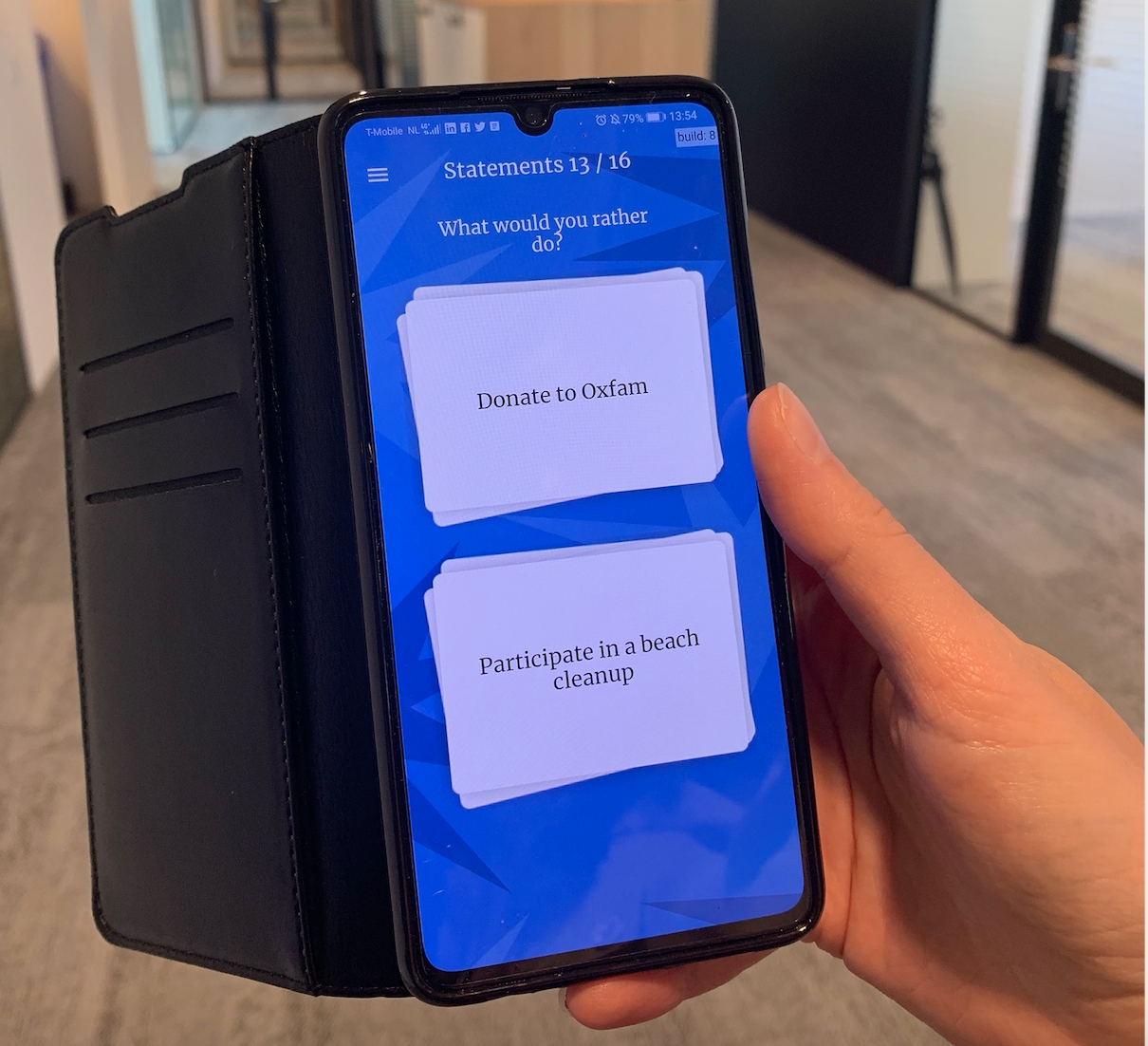What will Utrecht look like in 2040?

Increasing student awareness about sustainability: that is one of the goals that associate professor Karin Rebel had in mind when she developed the Utrecht2040 app together with other teachers and game company IJsfontein. Students from the Faculty of Geosciences went out in teams to complete various challenges. "Many students have already used the app," says Rebel. "The feedback so far has been positive."
Once you have registered in the app, you will first be presented with a number of dilemmas. The question always is: "what would you rather do?" Or "what do you find more important?”, with two possible options underneath. For example, you can choose whether you want to donate money to Oxfam or help clean up the beach. These "statements" are based on the "Sustainable Development Goals" (SDGs) drawn up by the United Nations. Your profile will be created based on your answers to the dilemmas. In your profile you can see how important these goals are to you and how much impact you think you will have on these goals. You may prefer to fight poverty rather than deal with the recycling of waste.
Subsequently, you watch a short film, a nano-talk, about, for example, the inclusive city, and you go out in groups to view the city from a different angle. You look at the city, and consider what it should look like in 2040, through challenges. For example, you will be asked to take a photo of your biggest hypocrisy regarding sustainability together with an appropriate solution to improve the situation. You can then upload your photos in the app and view those of others. To conclude the challenges, the results of the uploaded material are viewed in a class and you will reflect on your personal progress. Everyone is then given the opportunity to change an SDG in the profile based on their new experiences, for example by making it more or less important.
Lea Fuhrmann is a Global Sustainability Science student and used the app during her introduction to her study programme. “You think differently about the everyday places in the city and you get to know Utrecht better as a new student.” Lea also looked closely at what was shared through the app. “Other students had uploaded great ideas. Someone had been thinking about vacant roofs in the middle of the city where you could grow fruit and vegetables.” Lea greatly benefited from the dilemmas presented in the app. "This gives you a good insight into what is important to you."
The app has been used four times so far. In October, Rebel hopes to be able to use the app with students twice more. “The feedback in September was positive. The usability of the app went smoothly and students seemed to find it fun and exciting.” At the moment, it is difficult to say whether students have really learned anything from the app, says Rebel. “We have put together focus groups to evaluate the app, but we have not yet fully analysed the outcomes. We keep talking to students to improve the app.”
Rebel hopes that the app can be used throughout the University. “The strategic plan of Utrecht University states that all UU students must come into contact with sustainability. This app could take care of that. Meanwhile, students of Philosophy, Politics and Economics (PPE) have also used the app. Students from the Faculty of Humanities will be introduced to the app in October."